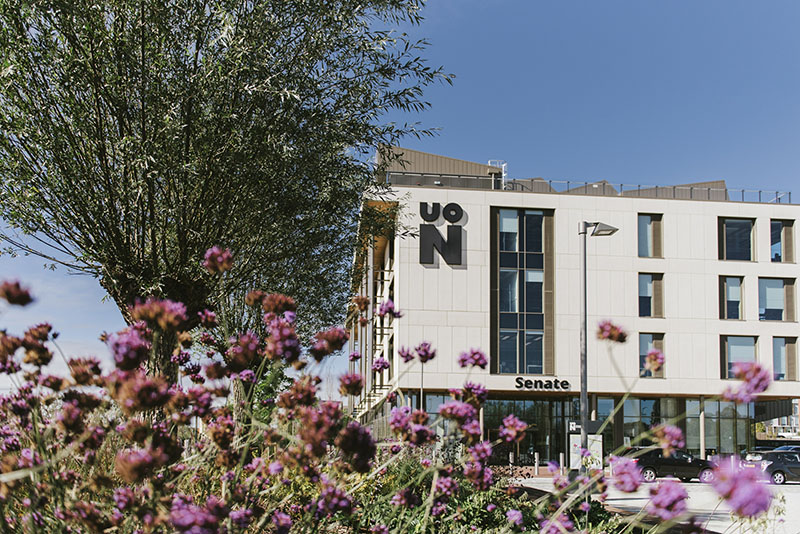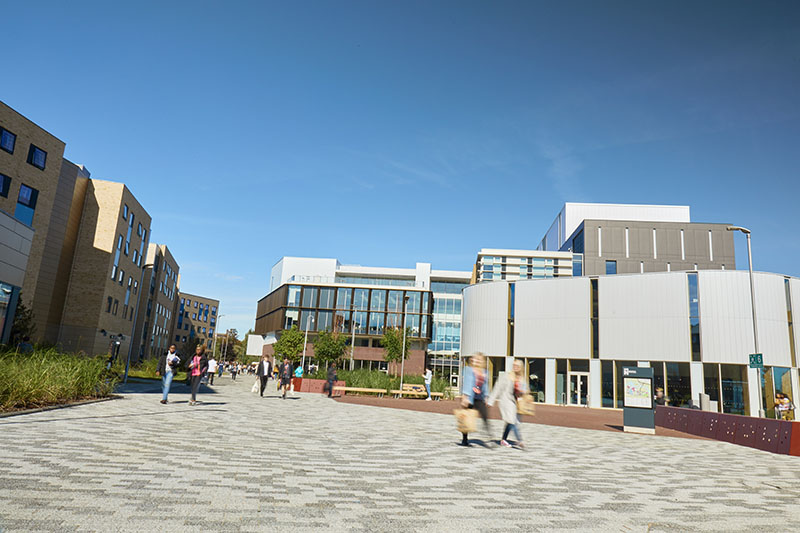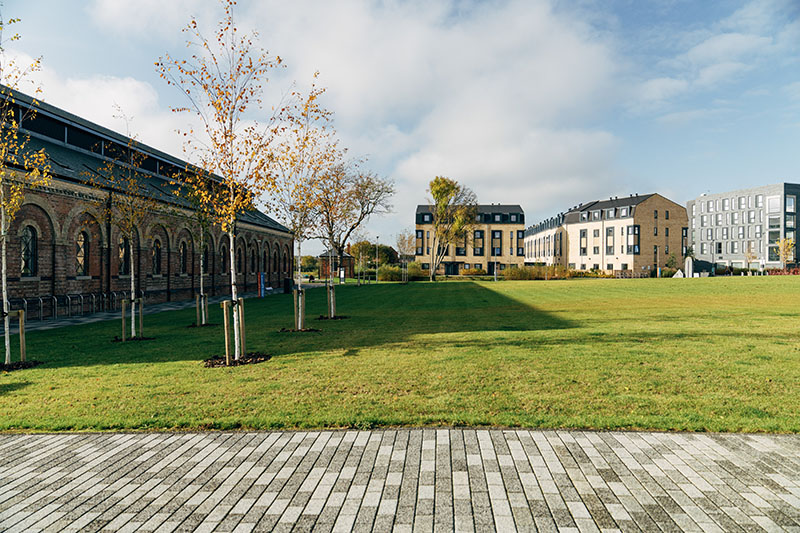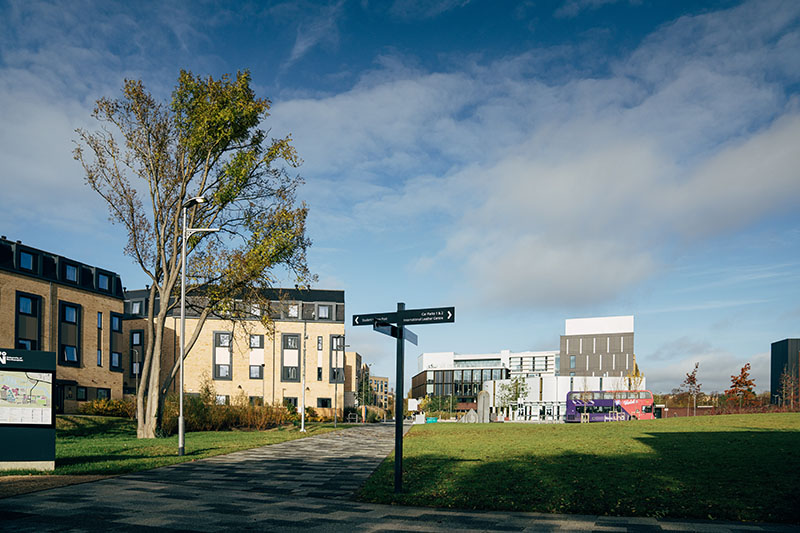
Tereza Aidonopoulou
Senior Lecturer in Education (SEN and Inclusion)
Faculty of Health, Education and Society
DiscoverLevel
Master'sPG
MADuration
1 year full time
2 years part time
Starting
September, January
Fees UK 24/25
Full Time:: £8,250
Part Time:: £4,140 per 90 credits
Fees International 24/25
Full Time: £16,995
Location
For questions regarding study and admissions please contact us:
This course will help you to develop your knowledge and skills in the field of Special Educational Needs and Inclusion, specialising in the autism spectrum, including Asperger syndrome. This specialist pathway is ideal for professionals working in early years, primary or secondary schools, further and higher education, voluntary sector, advisory roles, and residential settings. You can also study this course if you have a personal interest, subject to entry requirements.
Special Educational Needs and Inclusion will give you in-depth knowledge and understanding of various aspects related to autism. Our modules will help you to understand autism from the perspective of the individual and the family, focusing on theories that explore the strengths and needs of individuals. In order to help you evaluate best practice, including your own, we will take you through a thorough analysis of evidence-based approaches. Overall, we aim to help you to reduce the barriers that individuals with autism face in education and wider society.
Updated 14/06/2024
This course has been designed to contribute towards achieving the following United Nations Sustainable Development Goal: SDG4 Quality Education.
The modules undertaken will vary depending upon the selected exit award (PG certificate, diploma, MA). Each module is equivalent to 30 Credit Accumulation and Transfer Scheme (CATS) points at level 7, except the dissertation which is 60 CATS points. If you want to complete the full MA, you will complete three compulsory modules, an optional module and a research thesis.
Module information can be found on the Award Map.
Please note the modules shown here relate to the academic year 24/25. The modules relating to the academic year 25/26 will be available from June 2025.
Applicants will possess one of the following:
Or
Or
Or
Or
Or
For more more information on how to make an application, please visit our How to Apply page.
If you are an International student and would like information on making an application, please see our How to Apply page.
All International and EU students applying for a course with us must meet the following minimum English language requirements:
For information regarding English language requirements at the University, please see our IELTS page.
Fees quoted relate to study in the Academic Year 24/25 only and may be subject to inflationary increases in future years.
*may be subject to inflationary increases in future years.
Fees quoted relate to study in the Academic Year 23/24 only and may be subject to inflationary increases in future years.
*may be subject to inflationary increases in future years.
There are no additional costs for this course for students beginning their studies in September 2020. Should this change, applicants and students will be contacted by the university with details of the costs.
If you are starting a postgraduate Master’s course in 24/25 you may be able to apply for a postgraduate Master’s loan Student Finance England.
If you have previously studied a PGCE and have APL modules you will not qualify for a loan from Student Finance England.
For information on the scholarships available to you, please see our scholarships page.
For more information about possible funding options, please visit our Fees and Funding pages.
We take an active blended learning approach to this course, providing you with the opportunity to learn in face-to-face and online settings. Your modules will be taught through lectures, seminars, group work, case studies, tutorials and independent study, over three terms.
For this course, taught study is usually three hours per week, per module. We also recommend that you spend 10 hours per week, per module in self-directed study time.
This course is available to study full-time and part-time with a September start.
The PG Certificate includes two 30 credit modules and takes one year full-time or between one and two years part-time.
The PG Diploma includes four 30 credit modules and takes one year full-time or between two and three years part-time.
The MA will involve completing four 30 credits modules and a dissertation and takes one year full-time or between two and four years part-time.
Our assessment procedures are flexible and work around your personal interests and professional workloads. Assessment is usually in the form of essays, case studies, portfolios, reports and research projects.
There are a number of local and regional services and settings for individuals with autism which you could get involved with during your study.
"The tutors were really helpful throughout my whole university experience and kindly supported me with the process of writing my essays and my dissertation." - Renia Sakatzidou -
Senior Lecturer in Education (SEN and Inclusion)
Faculty of Health, Education and Society
DiscoverHead of Education
Special Educational Needs and Inclusion (Autism Pathway) MA
DiscoverSenior Lecturer in Education (SEN and Inclusion)
Faculty of Health, Education and Society
DiscoverSenior Lecturer in Education (SEN and Inclusion)
Faculty of Health, Education and Society
DiscoverSenior Lecturer in Education (SEN and Inclusion)
Faculty of Health, Education and Society
DiscoverIf you are already working in the field of autism then the in-depth knowledge you will gain from this programme can help you to improve your practice or apply for management positions. A range of other career options in education, social care and voluntary sectors will be possible, such as being an advocate, learning mentor, or family adviser. For those who want to pursue further post-graduate research there is also a possibility of studying for a PhD.







